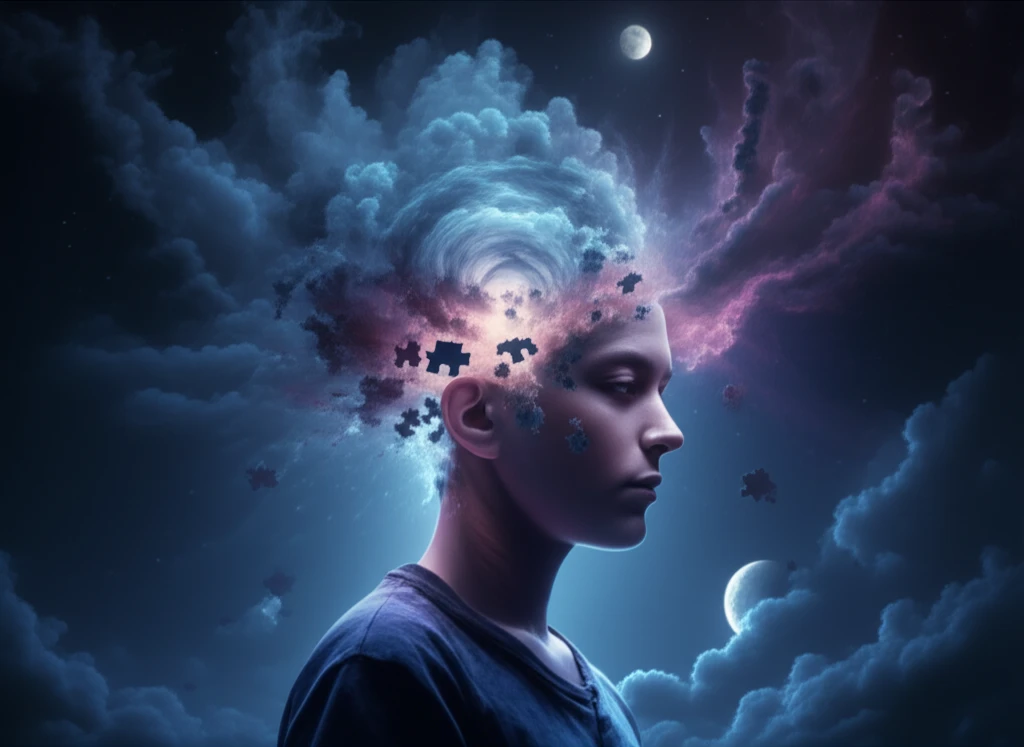
Is Your Mind Racing? How Emotional Lability, Wandering Thoughts, and Sleep Affect Adult ADHD
"Uncover the surprising links between ADHD symptoms, emotional regulation, mental focus, and sleep quality. Learn practical strategies to reclaim control and improve your well-being."
Attention-deficit/hyperactivity disorder (ADHD) is often recognized for its impact on focus and hyperactivity, but its effects extend far beyond these core symptoms. For many adults with ADHD, the challenges also involve intense emotions, a racing mind, and restless nights. These less-discussed aspects—emotional lability, mind wandering, and poor sleep quality—can significantly affect daily life, relationships, and overall well-being.
Emotional lability, characterized by rapid and intense shifts in mood, can make it difficult to manage reactions and maintain emotional equilibrium. Mind wandering, or the constant intrusion of unrelated thoughts, disrupts concentration and productivity. Sleep disturbances exacerbate these issues, leading to increased irritability, impaired cognitive function, and a greater struggle with ADHD symptoms.
Recent research has shed light on the intricate relationships between these factors in adults with ADHD. By understanding how emotional lability, mind wandering, and sleep quality interact, individuals can develop targeted strategies to mitigate their impact and improve their quality of life. This article delves into these connections, offering insights and practical advice for managing these often-overlooked aspects of ADHD.
The Emotional Rollercoaster: Understanding Emotional Lability in ADHD

Emotional lability, also known as emotional dysregulation, is a common yet often misunderstood symptom of ADHD. It involves experiencing rapid, intense, and often unpredictable shifts in mood. For adults with ADHD, this can manifest as sudden outbursts of anger, overwhelming sadness, or intense anxiety, often triggered by seemingly minor events.
- Neurological Differences: ADHD is associated with differences in brain structure and function, particularly in areas responsible for emotional regulation.
- Impulsivity: The impulsive nature of ADHD can lead to immediate emotional reactions without the filter of thoughtful consideration.
- Executive Dysfunction: Difficulties with executive functions, such as planning and organization, can make it challenging to manage emotional responses effectively.
- Comorbid Conditions: ADHD frequently co-occurs with other mental health conditions, such as anxiety and depression, which can further amplify emotional dysregulation.
Moving Forward: Practical Steps to Take Control
While the challenges of emotional lability, mind wandering, and sleep disturbances in ADHD can seem daunting, understanding their interplay is the first step toward effective management. By implementing targeted strategies, seeking professional support, and fostering self-compassion, adults with ADHD can navigate these complexities and enhance their overall well-being. Embrace the journey toward greater self-awareness and emotional balance, and reclaim control over your life.
